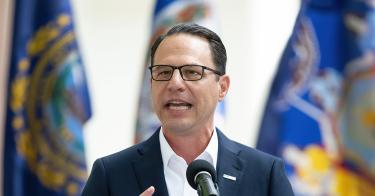Earlier this fall, Gov. Josh Shapiro left thousands of families hanging when he vetoed Lifeline Scholarships, a needs-based proposal that would have redirected state funds away from systems and toward students by allowing families to choose the schools that best align with their values and goals for their children. Apparently, the state’s slogan—“pursue your happiness”—doesn’t apply to the families of children trapped in Pennsylvania’s lowest-performing public schools, who would have benefited most from this option.
Just last week, The Heritage Foundation’s new Education Freedom Report Card confirmed what Pennsylvanians already knew: The state can—and must—make improvements in terms of education freedom or risk falling even further behind. In a survey of all 50 states on categories like education choice, academic transparency, regulatory freedom and return on investment for taxpayer spending, the report ranked Pennsylvania No. 21 in education choice and made it clear that lawmakers in the Keystone State “have failed to improve the state’s education options in recent years.”
>>> Iowa Leads the Way on Education Freedom
Pennsylvania’s lack of improvement is not for a lack of funding. The commonwealth has the country’s seventh-highest spending per pupil in cost-of-living adjusted terms. And yet, its student literacy continues to drop exponentially. Kim Ward, Pennsylvania Senate President Pro Tempore, has stated that “only 3% of students are proficient at the level they are graduating from.”
So, perhaps the problem isn’t the amount of funds at all, but that Pennsylvanians are being denied access to choice, even at the cost of students’ academic success.
As Sarah Torres, a mother of an 11th-grader in Reading School District, claimed recently to the state Senate Education Committee that there are more than “250,000 students trapped in failing schools across 39 counties.”
Pennsylvanians both deserve and are longing for the freedom of school choice. As Torres put it, “I would like to have the chance to save my son and help him get to where he wants to go, which is becoming a lawyer.” Lifeline Scholarships would have provided Torres and countless others with just that: a chance to pursue a better future.
Moreover, they would have forced many of the state’s failing public schools to improve and be more accountable to parents, or face losing students. As Keemah Brewington, a mother of two children in the Philadelphia public school system, told the state House’s Republican Policy Committee that she believed more school choice would force Philadelphia’s public schools to “up their game.”
>>> An Escape From Failing Schools
While the program remains on hold in the state legislature, public support for Lifeline Scholarships reflects the broader desire for comprehensive education choice within the commonwealth. One way to do this is by making Education Savings Accounts available in Pennsylvania. ESAs are essentially publicly funded, government-authorized savings accounts that allow families to put a portion of state education funds toward their children’s education. The funds can be spent on everything from private school tuition and tutoring to homeschool curricula, special needs therapy and more. They cost less per pupil than what the state currently spends on district schools. And they provide all parents, regardless of ZIP code or income status, with much more power over their children’s schooling.
Every child in the commonwealth deserves an extraordinary education. And their parents know best what they need. As lawmakers reconvene—and in the absence of Lifeline Scholarships—Pennsylvanians should settle for nothing less than universal ESAs that ensure every parent and student has access to a robust and competitive education.
Madison Marino is a Research Associate and Project Coordinator in the Center for Education Policy at The Heritage Foundation. Giana DePaul is a Fall 2023 member of the Young Leaders Program at The Heritage Foundation. Giana is also a proud Pennsylvania native, raised in Montgomery County.
This piece originally appeared in City & State Pennsylvania




